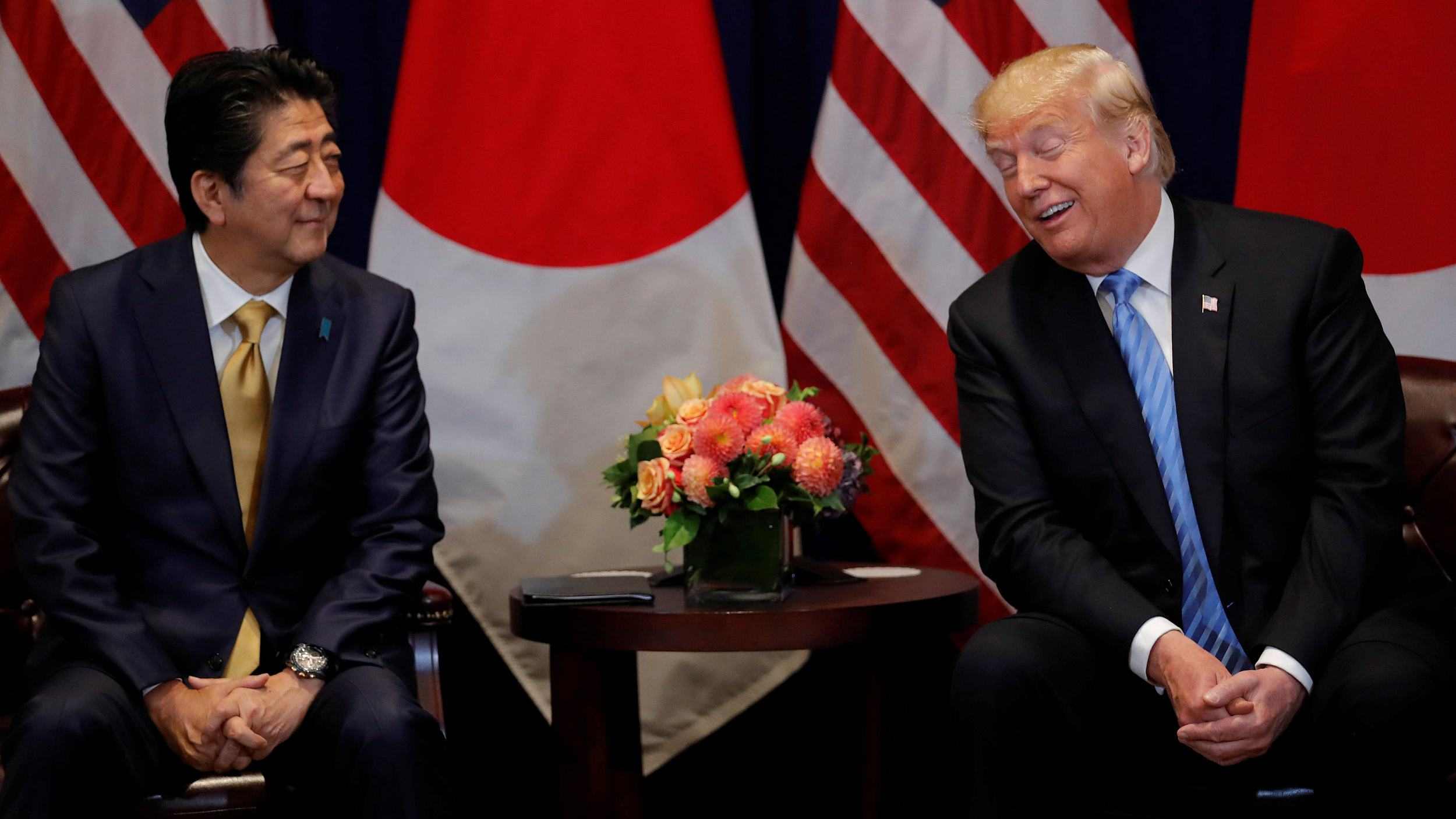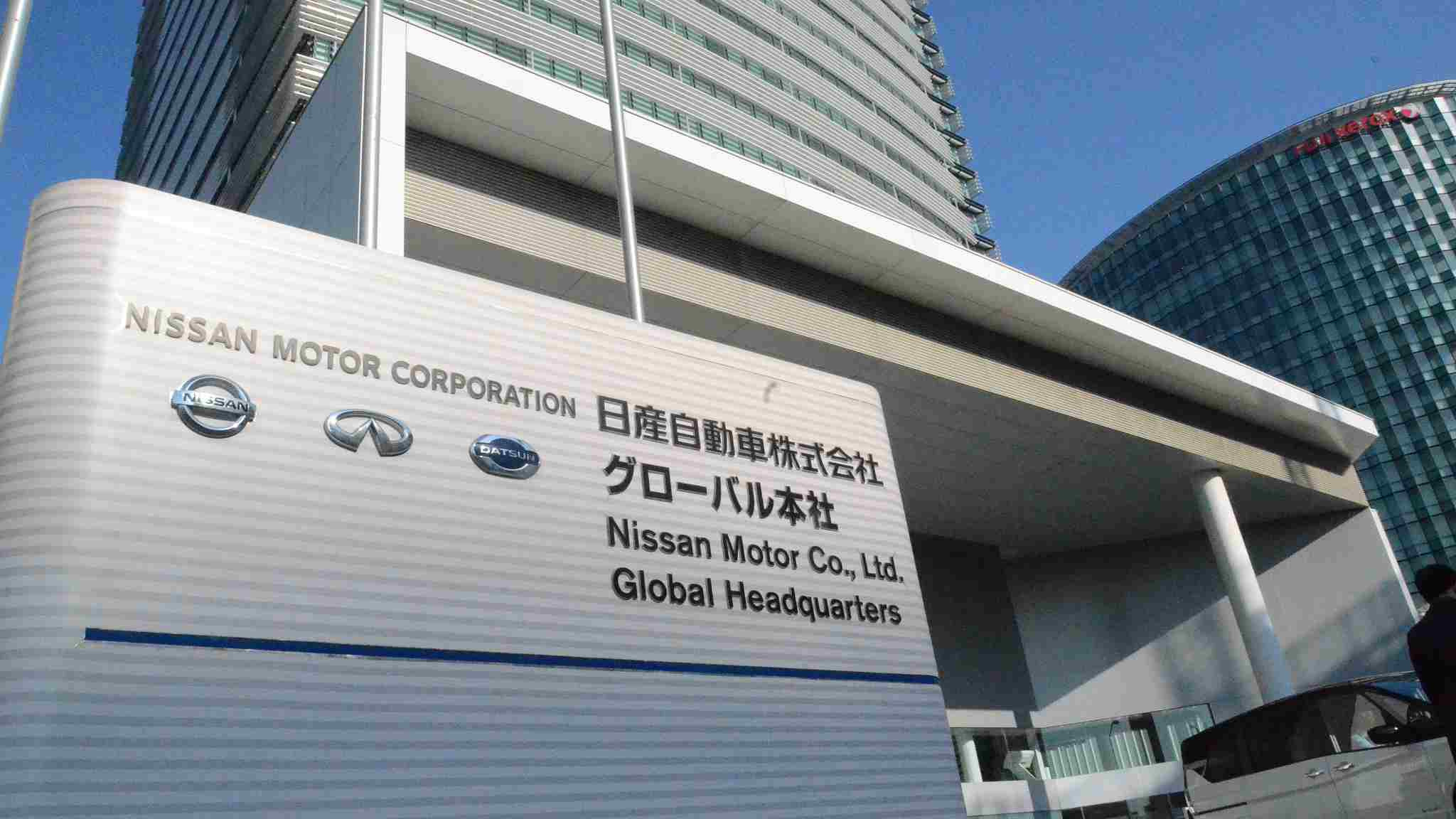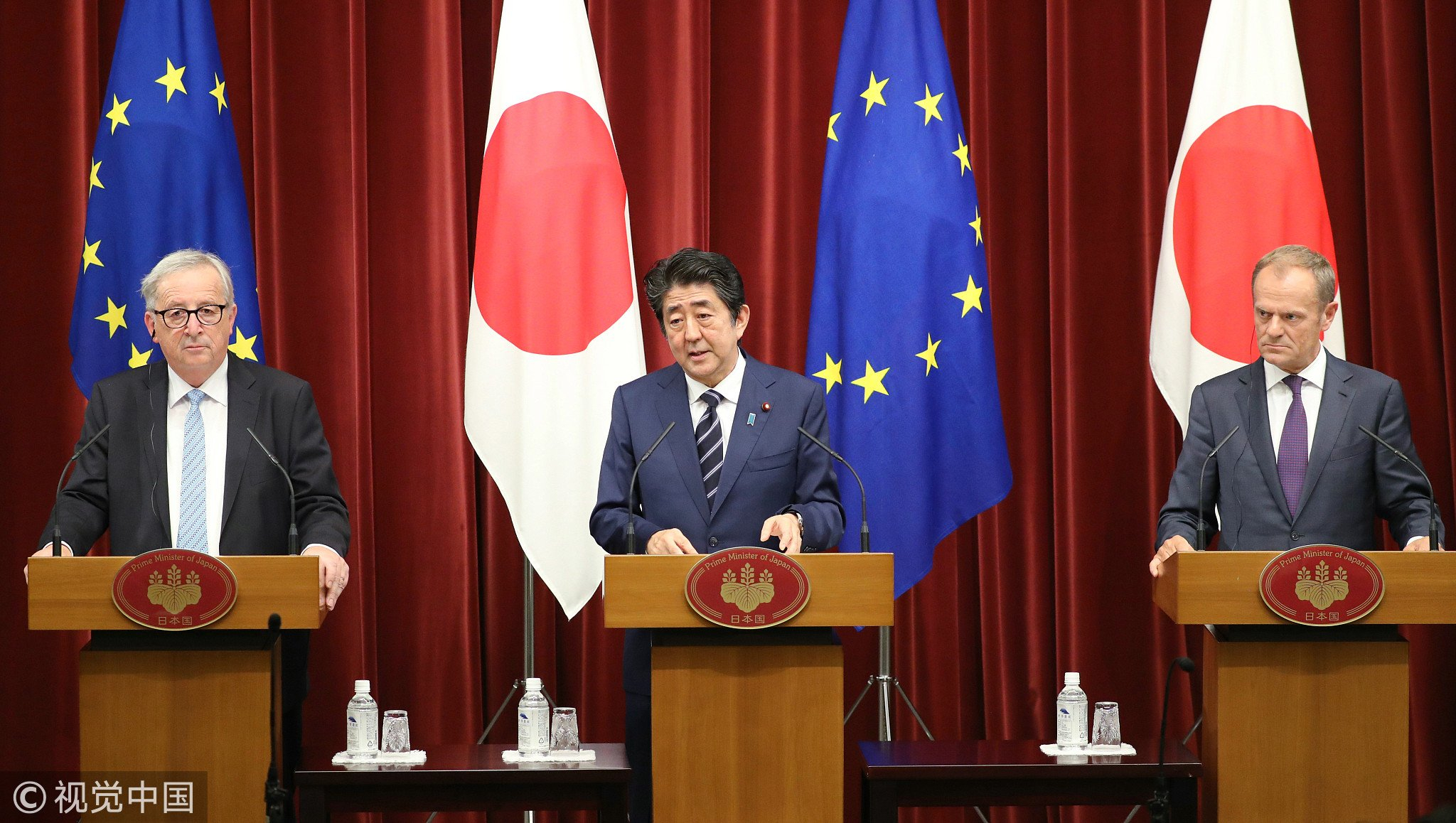
Opinion
10:34, 15-Apr-2019
Will Japan withstand U.S. pressure this time?
Liu Chunsheng

Editor's note: Liu Chunsheng is an associate professor at the Beijing-based Central University of Finance and Economics and deputy dean of Blue Source Capital Research Institute. The article reflects the author's opinions, and not necessarily the views of CGTN.
The U.S. and Japan have kicked off their long-delayed two-day trade talks in Washington on April 15. The timing is a little bit tricky because Japanese Foreign Minister Taro Kono is paying an official three-day visit to China starting April 13 during which the two sides have co-chaired the fifth China-Japan High-level Economic Dialogue.
The U.S.-Japan trade talk delayed several times since the U.S. is busy negotiating a trade deal with China. Now with the optimism that U.S.-China trade talks will soon be concluded by an agreement, the U.S. is ready for negotiation with Japan. The U.S.-China trade talk has shown the world that President Donald Trump is ready to be tough against all of his counterparts and it is likely that he is going to use the same posture in the talks with Japan.
The first round of U.S.-Japan trade talks will mainly focus on making a decision on which areas the two parties will discuss. Japan aims to limit the negotiation in "TAG," or trade agreement on goods, while the United States will not be satisfied with such scope and will want to include trade in goods, and service, investment, technical barriers, and exchange rate issue.

Global headquarters of Nissan Motor Co. in Yokohama, south of Tokyo, Japan, December 21, 2018. / VCG Photo
Global headquarters of Nissan Motor Co. in Yokohama, south of Tokyo, Japan, December 21, 2018. / VCG Photo
According to statistics, the trade volume in goods and services between the U.S. and Japan reached $283.6 billion U.S. dollars in 2017 with a U.S $55.5 billion U.S. dollars trade deficit of the U.S. At the same time, U.S. stood at a 13.4 billion U.S. dollars trade surplus in service.
U.S. President Donald Trump declared that America has long suffered from unfair trade with Japan. The U.S. is mainly concerned with the trade deficit in agriculture products, cars, and auto parts. For Japan, trade in agricultural products is related to its national security of foods, the interests of its farmers and will have a strong impact on its election in 2019. The automobile is Japan's advantageous industry and mainly exported products which the U.S. threatened to impose up to 25% tariff on but later announced to be postponed during the trade talk.
With political issue and Japan's security concerns involved, it seems that Japan does not have many bargaining chips. However, Japan's economic status is different from decades ago when the U.S. initiated a trade war against Japan. History is the best teacher. With a painful lesson learned, Japan is adjusting its bargaining skill.
Firstly, Japan aims to settle down the trade deal within a multilateral system or under the scheme of WTO. That's why it refused to establish a free trade agreement with the U.S. Besides, Japan's offer to the U.S. will perhaps be less comprehensive and than those of TPP, or the modified version, known as CPTPP.
Secondly, Japan is actively broadening its economic and trade relations with other partners. Japan is trying to play a leading role in CPTPP and has signed the Economic Partnership Agreement with the EU. Faced with trade bully from the U.S., Japan is also strengthening ties with China, the Republic of Korea, and regional organizations like ASEAN.

From left to right, European Commission President Jean-Claude Juncker, Japanese Prime Minister Shinzo Abe and European Council President Donald Tusk attend a joint press conference after the signing of an EPA between Japan and the EU at the prime minister's office in Tokyo on Jul 17, 2018. /VCG Photo
From left to right, European Commission President Jean-Claude Juncker, Japanese Prime Minister Shinzo Abe and European Council President Donald Tusk attend a joint press conference after the signing of an EPA between Japan and the EU at the prime minister's office in Tokyo on Jul 17, 2018. /VCG Photo
Thirdly, Japan may use its role in political issues like denuclearization on the Korean Peninsula as leverage when negotiating with the U.S.
Nevertheless, Japan is still confronting the dilemma between its long-time alliance with the U.S., and its realistic needs for a fair trade agreement for economic gains. As the stronger power speaks louder at the negotiation table, it remains to be seen whether Japan can withstand the pressure.
(If you want to contribute and have specific expertise, please contact us at opinions@cgtn.com)

SITEMAP
Copyright © 2018 CGTN. Beijing ICP prepared NO.16065310-3
Copyright © 2018 CGTN. Beijing ICP prepared NO.16065310-3